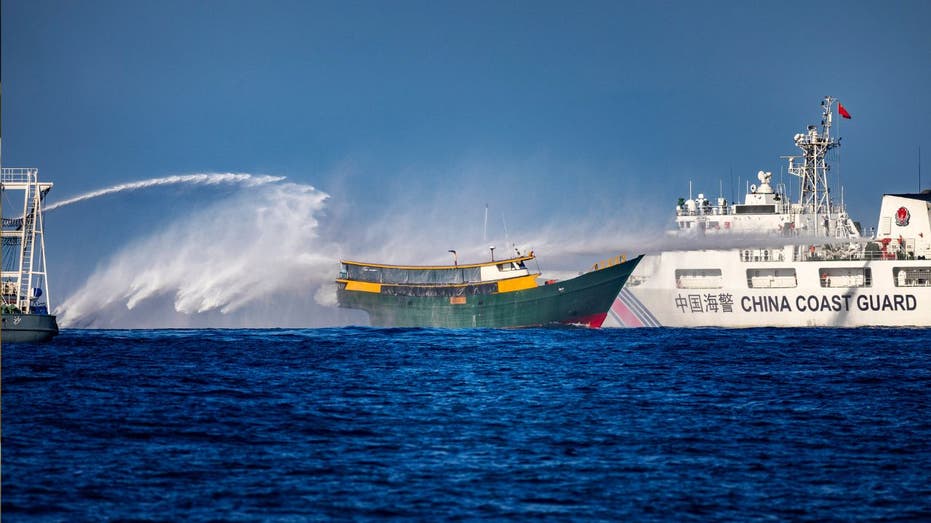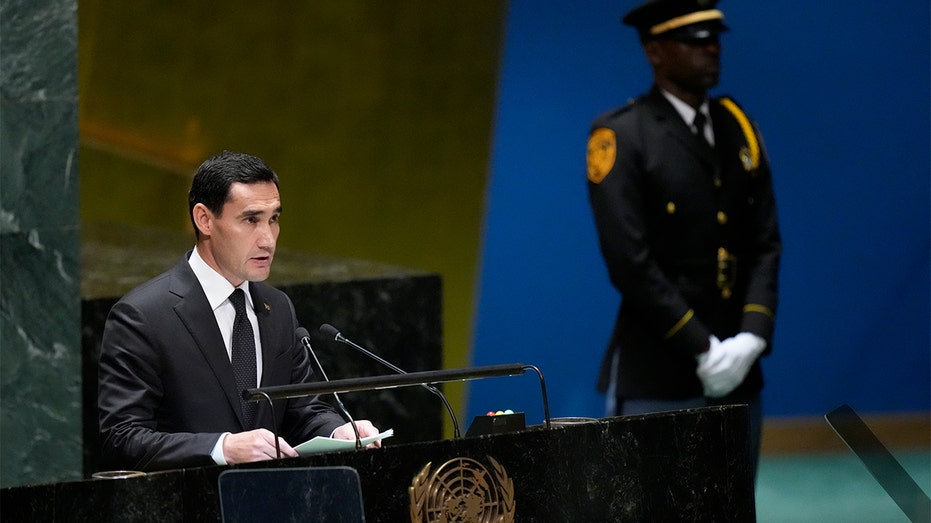Philippines warns of ‘red line’ with Beijing amid heightened tensions in South China Sea
The Philippines have warned China that it would consider any Filipino soldier killed by a Beijing water cannon to be an “act of war" amid heightened tensions in the region.

Philippine President Ferdinand Marcos Jr. has drawn a red line in its standoff with China, warning Beijing that it would consider any Filipino soldier killed by a Beijing water cannon to be an "act of war," sparking fears that an escalation could drag the U.S. into a conflict in the South China Sea.
The Filipino leader was answering a hypothetical question at the annual Shangri-La Dialogue security summit in Singapore which was attended by defense chiefs from around the world, including Secretary of Defense Lloyd Austin.
Manila has been complaining about Chinese patrol ships firing water cannons at Philippine boats and supply vessels.
"If by a willful act a Filipino — not only serviceman but even Filipino citizen — is killed … that is what I think very, very close to what we define as an act of war and therefore we will respond accordingly. And our treaty partners, I believe, also hold that same standard," Marcos said, according to the BBC.
The U.S. is bound by a treaty signed with the Philippines to come to its defense should it come under attack and China and the Philippines have recently been clashing over territory in the region.
Some Filipinos have been injured in recent clashes, but none have been killed thus far.
"Once we get to that point, that is certainly, we would have crossed the Rubicon. Is that a red line? Almost certainly it's going to be a red line." Marcos said.
CHINA SENDS WARPLANES, BOATS AROUND TAIWAN FOLLOWING PHONE CALL BETWEEN XI AND BIDEN
Austin also spoke at the gathering and sought to refocus attention on China's threat in the Asia-Pacific, seeking to alleviate concerns that conflicts in Ukraine and Gaza have distracted from America's security commitments in the region. Austin met his Chinese counterpart, Dong Jun, on Friday in a bid to cool friction over issues from Taiwan to China's military activity in the South China Sea.
"Despite these historic clashes in Europe and the Middle East, the Indo-Pacific has remained our priority theater of operations," Austin said in his speech. "Let me be clear: The United States can be secure only if Asia is secure. That’s why the United States has long maintained our presence in this region."
Austin underscored the importance of alliances in the region and called for a peaceful resolution of disputes through dialogue and not coercion or conflict.
He said that the harassment that the Philippines has faced "is dangerous — plain and simple."
Austin said the United States’ commitment to its treaty with the Philippines was "ironclad," although he would not speculate on how the U.S. might react should Manila’s red line be crossed.
"There are a number of things that can happen at sea or in the air, we recognize that," Austin said. "But our goal is to make sure that we don't allow things to spiral out of control unnecessarily."
"A war or a fight with China is neither imminent, in my view, or unavoidable."
Reuters contributed to this report.
What's Your Reaction?
















